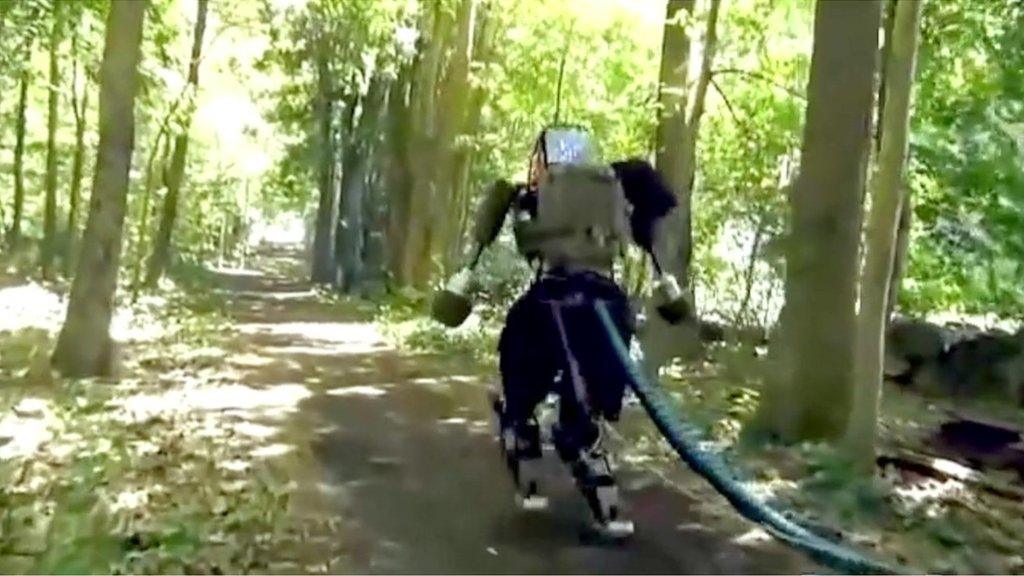Brynjolfsson and McAfee: The jobs that AI can't replace
- Published
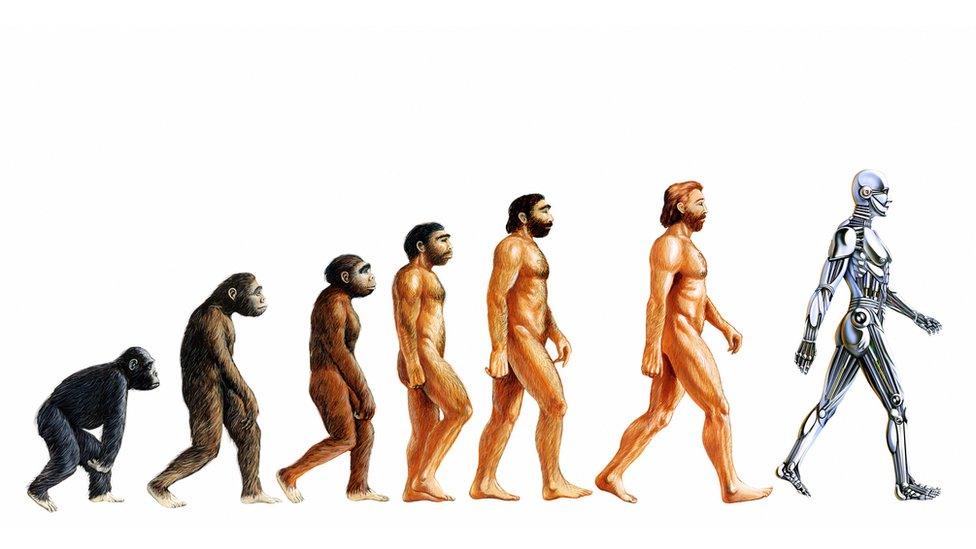
At the heart of capitalism is the concept of creative destruction. And this phenomenon is turbocharged by technological progress. Innovations from the cotton gin to electricity to the computer have created dramatic changes in the way that we work and the jobs that are available.
Current advances in robots and other digital technologies are stirring up anxiety among workers and in the media. There is a great deal of fear, for example, that robots will not only destroy existing jobs, but also be better at most or all of the tasks required in the future.
Our research at the Massachusetts Institute of Technology, external (MIT) has shown that that's at best a half-truth. While it is true that robots are getting very good at a whole bunch of jobs and tasks, there are still many categories in which humans perform better.
And, perhaps more importantly, robots and other forms of automation can aid in the creation of new and better jobs for humans. As a result, while we do expect that some jobs will disappear, other jobs will be created and some existing jobs will become more valuable.
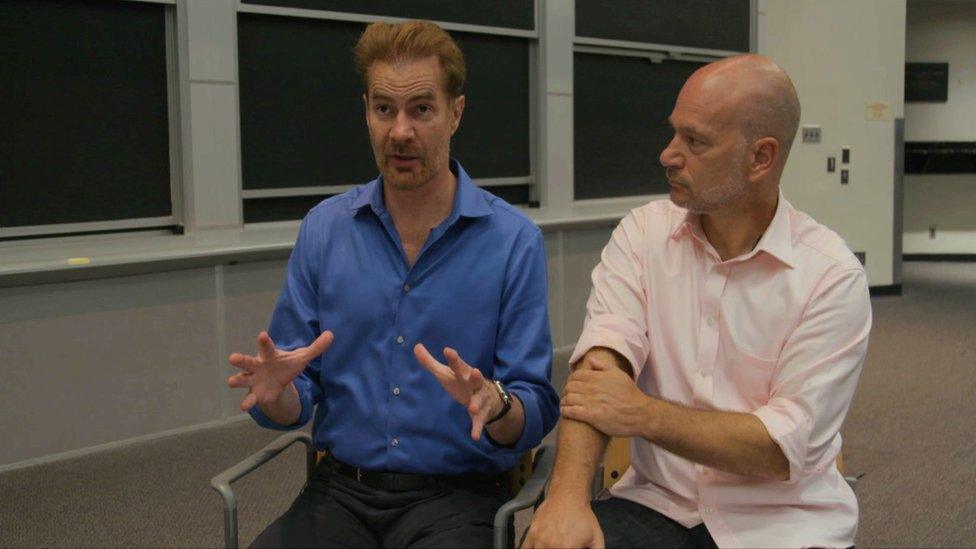
Erik Brynjolfsson and Andrew McAfee believe that intelligent machines will pose a increasing challenge to policy-makers, businesses and workers
For example, machines are currently dominating the jobs in routine information processing. "Computer," after all, used to be an actual job title of a person who sat and added long rows of numbers. Now it is, well, an actual computer.
On the other hand, jobs such as data scientist didn't used to exist, but because computers have made enormous data sets analyzable, we now have new jobs for people to interpret these huge pools of information. In the tumult of our economy, even as old tasks get automated away, along with demand for their corresponding skills, the economy continues to create new jobs and industries.

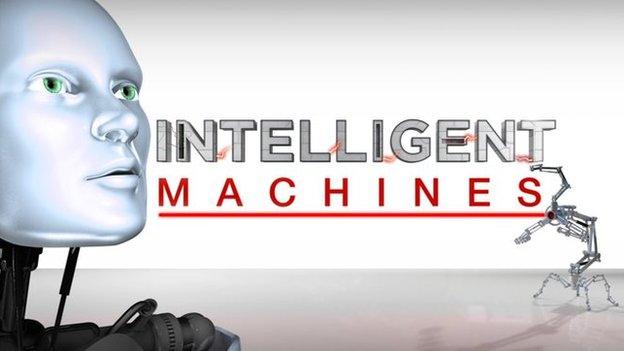

There are three areas where humans have a distinct advantage over machines. These are areas that are key to job creation.
Where humans beat machines
Creative endeavours: These include creative writing, entrepreneurship, and scientific discovery. These can be highly paid and rewarding jobs. There is no better time to be an entrepreneur with an insight than today, because you can use technology to leverage your invention.
Social interactions: Robots do not have the kinds of emotional intelligence that humans have. Motivated people who are sensitive to the needs of others make great managers, leaders, salespeople, negotiators, caretakers, nurses, and teachers. Consider, for example, the idea of a robot giving a half-time pep talk to a high school football team. That would not be inspiring. Recent research makes clear that social skills are increasingly in demand., external
Physical dexterity and mobility: If you have ever seen a robot try to pick up a pencil you see how clumsy and slow they are, compared to a human child. Humans have millennia of experience hiking mountains, swimming lakes, and dancing—practice that gives them extraordinary agility and physical dexterity.

Jobs which involve physical dexterity, like dancing, are under less threat from intelligent machines than those which involve the processing of information
Jobs that depend on these kinds of skills and experiences, such as gardening and housekeeping, are jobs that robots are not good at. Some of these jobs are not always highly paid, but it is unlikely that a robot will soon take them over. However, our friends in robotics are working hard at getting better all the time, so this last category is the one most likely to change.
From an economic perspective: what should workers and governments do?
Our economic data make it clear that we are not doing as well as we should be at creating jobs and raising wages. Corporations, workers and government can work together to find solutions to this problem.
The percentage of prime working age adults in the US with jobs, external is at a 30-year low, hourly wage growth is slow by historic standards, external, and real median household income, external is no higher than it was 20 years ago.
Workers, for their part, have to be strategic and aim for the jobs least likely to be overtaken by robots or other machines. They have to commit to a lifetime of practicing and updating their skills by, for example, taking extra courses online and in classrooms. Lifetime learning and continued training and retraining are key.
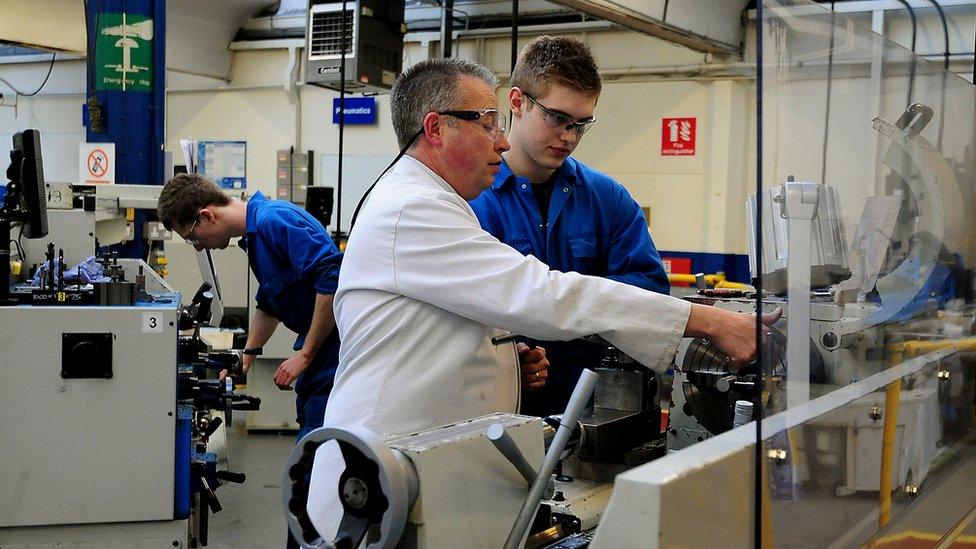
Many workers will need to train and retrain throughout their lives to stay ahead of increasingly skilled machines
Governments, for their part, need to create a climate where entrepreneurs can flourish, because new ventures create new jobs. There is troubling evidence that entrepreneurship is on the decline., external This needs to change.
The answer to the new and growing workforce of robots is not to slow the pace of technological progress, but to speed up our institutions so that entrepreneurs, managers and workers alike can thrive.
Erik Brynjolfsson, a professor at the MIT Sloan School of Management and Andrew McAfee, a scientist there, are the co-authors of The Second Machine Age: Work, Progress, and Prosperity in a Time of Brilliant Technologies.
Could A Robot Do My Job? will be shown on Panorama at 20:30 BST on BBC One, 14 September 2015 - or catch up on BBC iPlayer
- Published12 August 2015
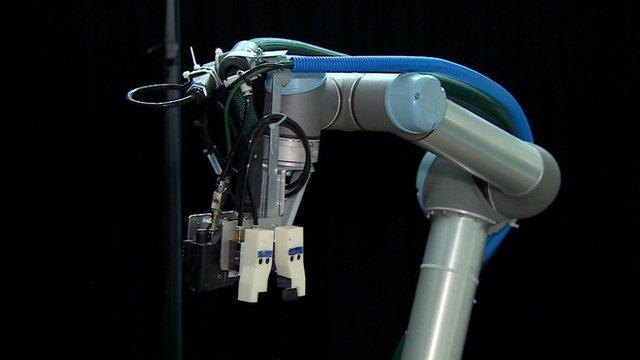
- Published12 August 2015
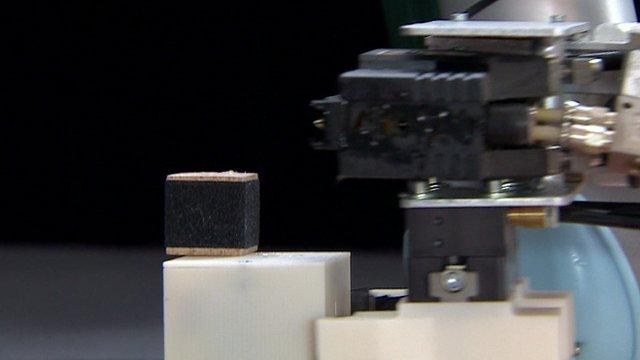
- Published19 August 2015
